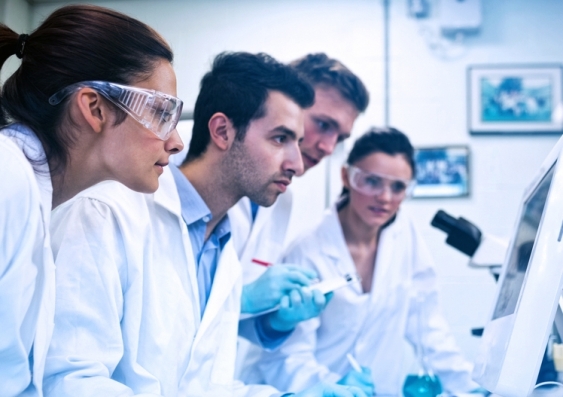UNSW and The George Institute mark new era in Australian health research
Two of Australia’s biggest medical research organisations have entered a strategic partnership to dramatically boost health research and transform lives around the world.
Two of Australia’s biggest medical research organisations have entered a strategic partnership to dramatically boost health research and transform lives around the world.

Two of Australia’s biggest medical research organisations, the University of New South Wales (UNSW Sydney) and The George Institute for Global Health, have entered a new strategic partnership to dramatically boost health research and contribute to the kind of high impact insights and outcomes that will transform lives around the world.
The George Institute’s affiliation with UNSW Sydney is the biggest move by an Australian medical research institute and marks a significant new chapter for both organisations.
The founders and principal directors of The George Institute, Professors Stephen MacMahon and Robyn Norton, said: “UNSW and The George Institute are both world leading organisations driven by a common purpose – to improve the lives of millions of people, not just here in Australia but around the world.
The new collaboration will help shape the future of medical research.
“Chronic diseases like heart attacks, stroke and diabetes are on the rise globally and we need solutions right now to tackle this growing epidemic. Partnering with UNSW Sydney ensures we can deliver both affordable and accessible treatments and prevention programs that will make a difference, and especially to those living in low and middle-income countries.”
UNSW President and Vice-Chancellor Professor Ian Jacobs said: “At UNSW we believe we have a responsibility to use our expertise to benefit the broader global community. The complementary research strengths of the partners will enable us to find new ways to have a global impact.”
Both UNSW Sydney and The George Institute share a strategic vision for driving change through impactful research. As planning continues for further collaboration, there are already moves to align the focus and scope of their combined work.
Vlado Perkovic, George Institute Executive Director for Australia, will lead the non-communicable diseases theme as part of the UNSW Medicine’s thematic research strategy. Meanwhile, UNSW staff will work with The George Institute’s Chief Scientist, Anushka Patel, to identify new international research opportunities in the Asia-Pacific region.
The George Institute’s affiliation with the University of Sydney ended last month. Over the past 18 years, the George Institute has grown from just a handful of staff to now employing 600 people globally with centres beyond Australia in India, China and the UK.
“We would not be where we are without the support of the University of Sydney, and we have both benefited greatly from our collaboration. But today is a new day, and we are excited by the future and what we can achieve over the next 18 years,” added Professors MacMahon and Norton.
UNSW’s Professor Jacobs said: “The new collaboration will help shape the future of medical research, with initial areas to focus on non-communicable diseases and injuries; clinical trials; epidemiology and biostatistics.
“We are also eager to collaborate in the emerging field of healthcare ‘big data’.
“We have ambitious plans for the partnership. These include a focus on research to improve the health of women, girls and Aboriginal and Torres Strait Islander communities; research on health-focused social enterprises; and the establishment of a global health policy think tank,” Professor Jacobs said.